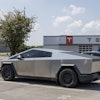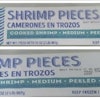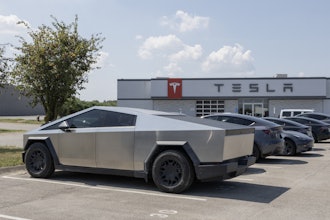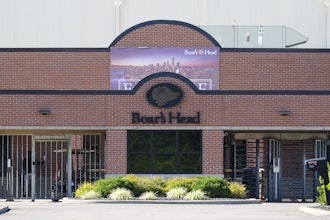TOKYO, Oct. 26 (Kyodo) — The civil lawsuit lodged by Nippon Steel & Sumitomo Metal Corp. against South Korean steelmaker Posco that opened Thursday for hearing may have implications reaching not just those involved, but farther to other Japanese businesses troubled by technology leaks, according to the plaintiff.
Nippon Steel & Sumitomo Metal claims it has solid evidence to show in detail industrial spying activities of Posco in the alleged theft of manufacturing know-how of a specialty steel product, and is pressing for a total of 98.6 billion yen in damages and an injunction to halt production of the steel product.
Posco at the first hearing at the Tokyo District Court took on the challenge, categorically denying it stole the technology.
Nippon Steel & Sumitomo Metal, created after the Oct. 1 merger, is the world's second largest steelmaker, while Posco is the fifth. Each is the biggest manufacturer of steel products in its respective country, while the two are also strategic partners in research and product development since 2000.
The alleged theft concerns so-called grain-oriented electrical steel sheets, used in the core part of voltage transformers for power transmissions to homes. Nippon Steel used to hold a dominant position after it developed technology to boost power transmission efficiency in the 1990s.
Posco has increased its presence in the market since around 2005. Nippon Steel & Sumitomo Metal says it now controls around 30 percent of the global market, while Posco holds some 20 percent.
While Posco flatly denies the theft charges, Nippon Steel says it is focusing its attention on five sets of technology documents that it says have been leaked to Posco.
These documents are known to have been sold by a former Posco employee to China's Baoshan Iron & Steel Co., for 5 billion won (around 360 million yen). South Korean media outlets lashed out at the employee for selling the technology after a local criminal court issued a guilty verdict to the former employee in the theft case in 2008.
In the South Korean trial, it was shown that the five documents had titles written in Japanese and were identical to those produced by Nippon Steel.
Nippon Steel & Sumitomo Metal argues that "it is absolutely unnatural. It just means the documents held by Posco were leaked" from the former Nippon Steel.
Nippon Steel & Sumitomo Metal says four former Japanese employees who retired from Nippon Steel in the 1980s and 1990s got in touch with Posco and sold the documents.
The Japanese steelmaker has also lodged an 80 billion yen damages suit against one of the former employees who it says played the central role in selling the documents.
Posco, however, says, "It has hardly been made clear who contacted who and the date and time of such contact."
Nippon Steel & Sumitomo Metal says, "We have in our hands specifics such as the amount of compensation paid and details of the contact made. But we are not divulging them until the right time comes."
Both parties are represented by law firms known to be strong on intellectual property cases. Court arguments will likely be competitive. Nippon Steel & Sumitomo Metal is represented by Nishimura & Asahi, while Posco retains Abe, Ikubo & Katayama.
Japanese businesses have not been known as vigorous fighters against industrial espionage that could even compromise their competitiveness.
In many cases, they have been unable to gather evidence and have wound up turning a blind eye or being forced to accept compensation less than they believe they deserve.
In July, the Economy, Trade and Industry Ministry surveyed around 10,000 businesses about corporate information leaks. By the end of September, around 2,900 of them replied. The result indicated that about 5 percent of major manufacturers said they have encountered cases where information about their technologies appears to have been leaked.
A senior official at Nippon Steel & Sumitomo said, "It is an important lawsuit where the future of Japanese businesses is at stake. It's the best opportunity to show both domestically and internationally that industrial espionage activities in Japan do not pay."



















